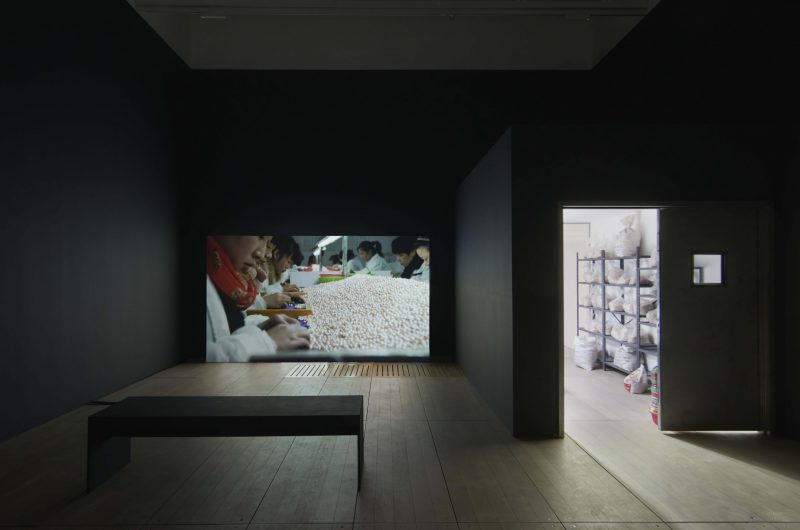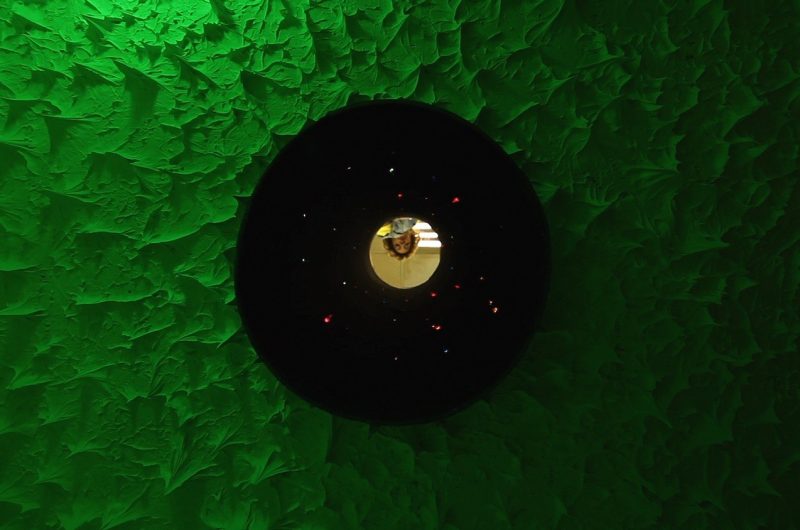Absurd Cosmos
With: Jennifer Higgie, Editor, Frieze; Dr. Chantal Faust, Royal College of Art; Hardeep Pandhal, artist; Bedwyr Williams, artist.
Responding to the exhibition of Mika Rottenberg, and the then upcoming display of poet and songwriter Ivor Cutler’s archive, this discussion explored the nature of humour and absurdity in contemporary art through academic research and artistic practice. They discussed how, and if, absurdity can be claimed as a mode of critique. The panel of speakers, which included artists and academics, reflected on the ripeness of its aesthetic at a time in which politics seems ever more irrational, and labour and production increasingly abstracted.
Absurdism, as discussed by writers such as Albert Camus and Henri Bergson, recognised the repetitions of daily life under industrialism as comic. Through recognising them as such, one could resist and fight them. As industrialisation has given way to accelerated and globalised forms of production and consumption the category of the absurd seems apt, but how has it transformed for this specific moment in time?
“the chain of daily gestures is broken”
Albert Camus, The Myth of Sisyphus
‘it’s…about taking something to an extreme to examine it.’
Mika Rottenberg
With: Jennifer Higgie, Editor, Frieze; Dr. Chantal Faust, Royal College of Art; Hardeep Pandhal, artist; Bedwyr Williams, artist.
Responding to the exhibition of Mika Rottenberg, and the then upcoming display of poet and songwriter Ivor Cutler’s archive, this discussion explored the nature of humour and absurdity in contemporary art through academic research and artistic practice. They discussed how, and if, absurdity can be claimed as a mode of critique. The panel of speakers, which included artists and academics, reflected on the ripeness of its aesthetic at a time in which politics seems ever more irrational, and labour and production increasingly abstracted.
Absurdism, as discussed by writers such as Albert Camus and Henri Bergson, recognised the repetitions of daily life under industrialism as comic. Through recognising them as such, one could resist and fight them. As industrialisation has given way to accelerated and globalised forms of production and consumption the category of the absurd seems apt, but how has it transformed for this specific moment in time?
“the chain of daily gestures is broken”
Albert Camus, The Myth of Sisyphus
‘it’s…about taking something to an extreme to examine it.’
Mika Rottenberg
Read Less...


